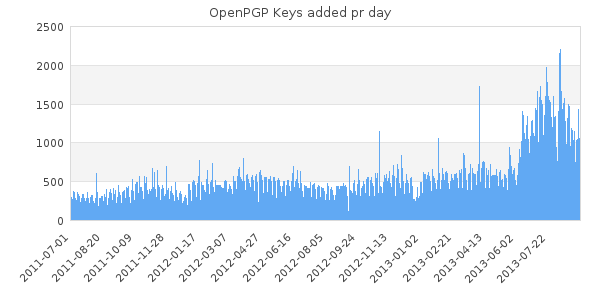I’m working on a code exercise and wanted to throw it in a web directory to allow read-only git clone/pull, without putting the repo up as a public one on github. Initializing the repository and using SSH for read-write access was familiar, since I’ve done it many times, but I stumbled around for a few minutes scanning docs for read-write HTTP repos that use fastcgi, gitweb, git-http-backend, git daemon, etc. This is just using simple and “dumb” read-only HTTP access, and the tidbit I had long forgotten was enabling the post-update hook to update the repository metadata, which just execs git update-server-info as commits are made – of course, git needs to be installed on the web server.
$HTTPROOT is the full path to your website directory (i.e. /srv/http/example.com).
On the server:
$ mkdir -p $HTTPROOT/git/myrepo.git
$ cd $HTTPROOT/git/myrepo.git/
$ git init --bare
$ mv hooks/post-update.sample hooks/post-update
On the client, use SSH to clone the repository for read-write work (needs full path to $HTTPROOT):
$ git clone ssh://$HOST/$HTTPROOT/git/myrepo.git
Cloning into 'myrepo'...
warning: You appear to have cloned an empty repository.
Checking connectivity... done
$ cd myrepo/
Then go about adding files, committing, and pushing changes over SSH.
When it comes time to share your work, the read-only repository can be shared with others and cloned/pulled with:
$ git clone http://$HOST/git/myrepo.git
Cloning into 'myrepo'...
Checking connectivity... done

